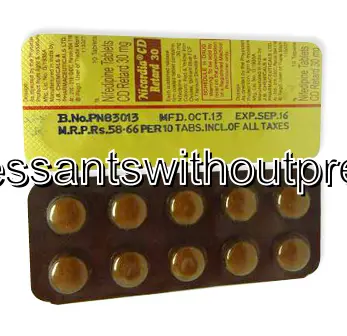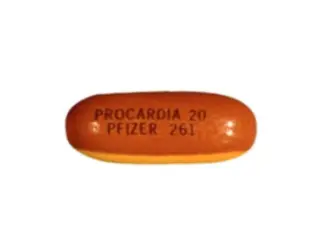| Package | Dosage | Price | Price per Dose | |
|---|---|---|---|---|
| Dosage: 10mg | ||||
| 360 pill | 10mg | £239.06 | £0.66 | |
| 180 pill | 10mg | £130.17 | £0.72 | |
| 120 pill | 10mg | £94.67 | £0.79 | |
| 90 pill | 10mg | £79.28 | £0.88 | |
| 60 pill | 10mg | £60.35 | £1.01 | |
| 30 pill | 10mg | £35.49 | £1.18 | |
| Dosage: 20mg | ||||
| 360 pill | 20mg | £285.21 | £0.79 | |
| 180 pill | 20mg | £157.39 | £0.88 | |
| 120 pill | 20mg | £118.34 | £0.98 | |
| 90 pill | 20mg | £101.77 | £1.12 | |
| 60 pill | 20mg | £76.92 | £1.29 | |
| 30 pill | 20mg | £48.51 | £1.63 | |
| Dosage: 30mg | ||||
| 180 pill | 30mg | £306.52 | £1.70 | |
| 120 pill | 30mg | £221.30 | £1.85 | |
| 90 pill | 30mg | £181.06 | £2.01 | |
| 60 pill | 30mg | £137.27 | £2.28 | |
| 30 pill | 30mg | £80.47 | £2.70 | |
| 10 pill | 30mg | £30.76 | £3.12 | |

Nifedipine Description
Overview of Nifedipine
Nifedipine is a medication commonly used to treat conditions related to the heart and blood vessels. It belongs to a class of drugs known as calcium channel blockers. The primary purpose of Nifedipine is to lower blood pressure and improve blood flow. It is often prescribed for management of angina pectoris, a condition characterized by chest pain caused by reduced blood supply to the heart. This medication can help in preventing angina attacks and in reducing the risk of heart attacks, strokes, or other cardiovascular events.
How Nifedipine Works
Nifedipine works by relaxing the muscles of the heart and blood vessels. It blocks calcium from entering the cells of the heart and arterial walls. Since calcium causes muscles to contract, blocking its entry causes the muscles to relax. The result is dilation of the arteries, which reduces resistance to blood flow. This mechanism helps in lowering blood pressure and decreasing the workload on the heart. Patients often notice an improvement in symptoms like chest pain or shortness of breath when taking Nifedipine as directed.
Benefits of Using Nifedipine
Many patients experience significant benefits with Nifedipine. Its ability to quickly relax blood vessels can lead to rapid symptom relief. Additionally, it can be effective in preventing the occurrence of angina episodes. For individuals with hypertension, Nifedipine can be part of a comprehensive treatment plan to maintain healthy blood pressure levels. Consistent use as prescribed may also help in reducing the long-term risk of cardiovascular complications. Some patients appreciate that Nifedipine is available in various formulations, including immediate-release and extended-release tablets, allowing for flexible dosing options.
Possible Side Effects and Precautions
Like all medications, Nifedipine may cause side effects in some users. Common adverse reactions include headaches, dizziness, flushing, and swelling of the ankles or feet. These effects are generally mild and tend to diminish over time. However, more serious side effects, such as a sudden drop in blood pressure, rapid heartbeat, or allergic reactions, require immediate medical attention. Patients with certain medical conditions, such as severe heart failure or low blood pressure, should inform their healthcare provider before starting Nifedipine. Moreover, Nifedipine may interact with other medications, so it is essential to provide a full list of all drugs being taken.
Usage and Dosage Recommendations
Nifedipine should be taken exactly as prescribed by a healthcare professional. The medication can be administered with or without food, but consistent timing is recommended to maintain even drug levels in the bloodstream. The dosage varies depending on the condition being treated and the formulation used. It is important not to alter the dose or stop the medication suddenly without consulting a doctor. Regular monitoring of blood pressure and other health parameters is essential during therapy to ensure optimal results and minimize risks.
Conclusion
Nifedipine is a well-established medication in the management of angina and hypertension. Its ability to relax blood vessels contributes to improved cardiovascular health and symptom relief. While generally safe when used as directed, it is vital to be aware of potential side effects and interactions. Patients are advised to follow their healthcare provider’s recommendations closely and report any unusual symptoms. Proper use of Nifedipine can significantly enhance quality of life and reduce the likelihood of serious heart-related events.

